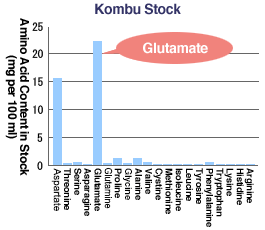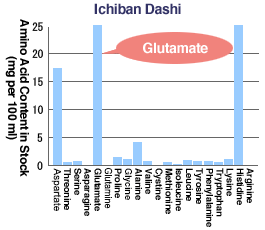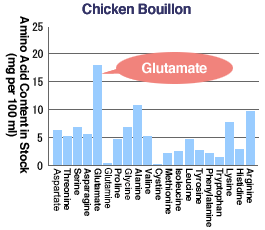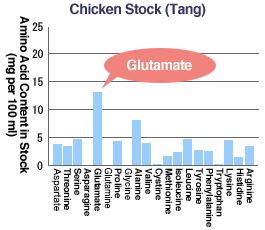- Home
- Company
- Amino Acid Encyclopedia
- Find Out the Secrets of Amino Acids!
- Delicious Taste and Amino Acids
Delicious Taste and Amino Acids
Amino Acids—The Key to Delicious Taste and Part of Food Culture Around the World

What Do Amino Acids Taste Like?
Everyone enjoys eating delicious food. While we use all five senses when eating food taste is the most important sense for deliciousness. Did you know that amino acids play an important role in the taste of foods? Amino acids can taste sweet, sour, bitter or umami.
Stocks and Soups—Foundations of Cuisine and Rich in Amino Acids
Soups and stocks are the foundations of cuisine and are made from many ingredients and used in different ways. From kombu stock used in Japan cuisine to chicken bouillon in French cuisine and chicken stock (tang) in Chinese cuisine, all are rich in amino acids. The chief characteristic that they share is the presence of glutamate, which produces an umami taste. Chicken bouillon and chicken stock also contain significant amounts of other amino acids including alanine and arginine that produce sweet and bitter tastes.





Based on research by Ajinomoto Group
Umami Discovered by a Japanese Professor
In 1908, Professor Kikunae Ikeda successfully extracted glutamate from kombu in his quest to discover the common taste that gives different foods their deliciousness. He named this taste umami.
Amino Acids—Unlocking the Secrets to Delicious Taste
Glutamate and other amino acids each have their own distinct taste ranging from sweet and sour to bitter and umami. These amino acids combine to help produce taste in foods.
Whether you are making stock or soup or tasting a finished dish take a moment to savor the taste produced by amino acids. You may notice something new about delicious taste.

